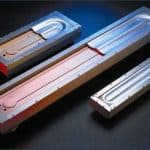 Cobalt is a key material for cathodes but can come from mines in conflict regions and is limited in supply, making it a bottleneck for volume battery production. HVS is made from lithium, manganese and nickel, without the high cost and supply chain risk of cobalt. It is suited to fast charging and high power applications and is a candidate for next generation solid state lithium ion batteries for automotive, consumer electronics and energy storage applications.
Cobalt is a key material for cathodes but can come from mines in conflict regions and is limited in supply, making it a bottleneck for volume battery production. HVS is made from lithium, manganese and nickel, without the high cost and supply chain risk of cobalt. It is suited to fast charging and high power applications and is a candidate for next generation solid state lithium ion batteries for automotive, consumer electronics and energy storage applications.
“We have met our objectives and made a number of significant breakthroughs” said Dr Elahe Talaie, Senior Scientist and HVS team lead with Nano One. “Battery performance is excellent when our HVS is tested with lithium, graphite and lithium titanium oxide anodes (LTO). Our innovative process can control particle size and output voltage; and it stabilizes HVS for high temperature applications. All of these advances are critical to battery manufacturers. The project has led to two patent applications and HVS production is now ready for demonstration at pilot scale.”
Nano One can make HVS and other high performance cathodes using lithium carbonate or hydroxide, giving its process an advantage over manufacturing methods constrained to costly lithium hydroxide. Nano One can control HVS particle size to tailor it for energy storage or power applications and its higher voltage enables simpler energy management systems and delivers increased power at high rates of discharge.
“Higher volume samples are being made in our pilot and we look forward to beginning HVS evaluations with commercial interests in 2018,” said Dr Stephen Campbell, Principal Scientist at Nano One.
